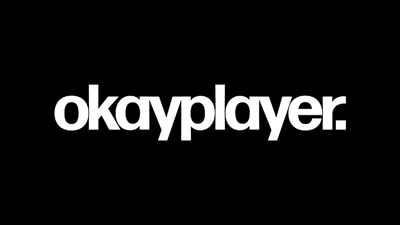Marvin Gaye's Family Wins Appeal In 'Blurred Lines' Plagiarism Case
Robin Thicke and Pharrell lost their long-standing plagiarism battle.
On Wednesday, the 9th Circuit Court of Appeals affirmed the verdict of the $5.3 million suit claiming Robin Thicke and Pharrell Williams' 2013 song "Blurred Lines" infringed on the copyright of Marvin Gaye's 1977 "Got to Give It Up."
By a 2-1 vote, the court ruled “Got to Give It Up” deserved “broad” copyright protection, and the March 2015 jury verdict in favor of Gaye’s three children could stand because there was “not an absolute absence of evidence” of similarity between the two songs.
Circuit Judge Milan Smith also upheld an award of 50 percent of all future royalties from “Blurred Lines,” the world's no.1 best selling song of 2013, to Gaye's family. The judge restored the jury finding that Interscope record label and T.I., who was featured on the track, should not be liable.
Jurors had awarded the Gayes $7.4 million, but U.S. District Judge John Kronstadt reduced the sum to $5.3 million, alongside the addition of royalties.
READ: Got To Give it Up: Robin Thicke & Pharrell Keep Appealing Their "Blurred Lines" Lawsuit
According to Reuters, the Gayes’ lawyer Richard Busch said in an interview, “The decision protects songwriters, and encourages new songwriters to create original works themselves.”
Frankie Gaye and Nona Gaye, two of the late singer's children, called the decision “a victory for the rights of all musicians.”
Circuit Judge Jacqueline Nguyen dissented from the decision citing "the majority’s uncritical deference to music expert." She wrote in a statement that the decision let the Gayes “accomplish what no one has before: copyright a musical style,” and expanded the potential for further copyright litigation.
Lawsuits surrounding song theft have proliferated in recent years.
WATCH: Pharrell's "Blurred Lines" Deposition Will Make You Want To Donate To Music Schools
"The Court’s decision is noteworthy in a couple of respects," says intellectual property attorney J. Michael Keyes in a statement to Okayplayer. "Upholding the jury’s verdict (and the ultimate damage award) could very well mean we see a new wave of additional music infringement lawsuits and claims. The 9th Circuit majority decision was quite explicit in opining that musical works receive broad protection and that 'there is no one magical combination of factors that will automatically substantiate a musical infringement suit.' That standard is rather noteworthy and leaves quite a bit of play in the joints for future litigants to cobble together a music infringement claim. In fact, as the dissenting opinion points out, the majority decision seems to give copyright protection to a 'musical style' as the two works 'differ in melody, harmony, and rhythm.'"
Keyes added a note about the 2016 Led Zeppelin copyright case for alleged theft of the opening guitar riff to “Stairway to Heaven."
"One important but rather technical issue that the court did not decide (and that is directly relevant in the Led Zeppelin Stairway to Heaven appeal pending before the 9th Circuit) was whether the 'scope' of copyright protection is dictated by the notes on the printed page (the sheet music) or whether the sound recording can be considered as defining the scope of protection The trial court ruled that the scope of Gaye’s copyright protection was limited to the sheet music because that is what was submitted to the Copyright Office and what was ultimately registered. The 9th Circuit assumed, without deciding the issue, that the trial court made the correct decision. We will need to wait and see how the court deals with this same theme in the Stairway to Heaven case."
SOURCE:Reuters
